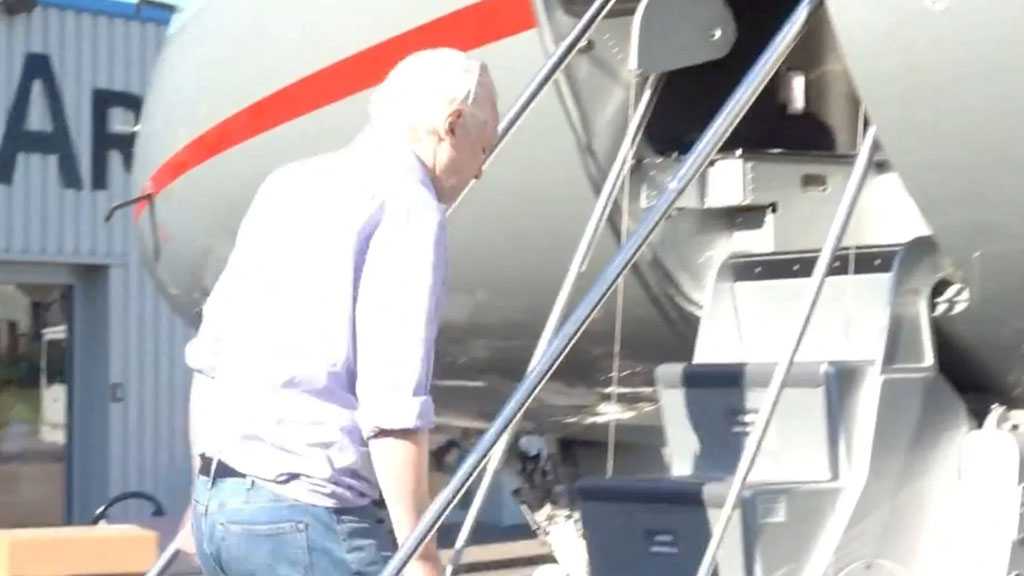Julian Assange Released: WikiLeaks Founder’s Freedom Secured with US Plea Deal

By Staff, Agencies
Julian Assange, founder of WikiLeaks, has been freed from a high-security British prison after striking a plea deal with US authorities, ending his 12-year legal struggle and permitting his return to Australia.
“Julian Assange is free,” WikiLeaks announced in a statement posted on social media platform X on Monday.
According to the statement, Assange left Belmarsh prison on Monday morning, was bailed by the UK High Court, and then boarded a flight, departing the UK that afternoon.
“This outcome is the result of a global campaign involving grassroots organizers, press freedom advocates, legislators, and leaders from across the political spectrum, up to the United Nations,” the statement added.
His plane landed in Bangkok on Tuesday, en route to Saipan in the Northern Mariana Islands, a US territory in the Pacific Ocean, where he is scheduled to appear in court on Wednesday.
Under the terms of the plea deal, Assange agreed to plead guilty to a single charge of conspiring to obtain and disclose classified US national defense documents, according to filings in the US District Court for the Northern Mariana Islands.
In return, he will be sentenced to 62 months of time already served.
Both the hearing and sentencing will take place in Saipan, as Assange has refused to travel to the US mainland. He will then return to Australia, according to WikiLeaks.
“Words cannot express our immense gratitude to YOU – yes YOU, who have all mobilized for years to make this possible,” his wife, Stella Assange, expressed in a post on X.
However, many press freedom advocates have noted that criminally charging Assange represents a significant threat to free speech.
“While we welcome the end of his detention, the US’s pursuit of Assange has set a dangerous legal precedent by allowing journalists to be prosecuted under the Espionage Act if they receive classified material from whistleblowers,” Reuters quoted Jodie Ginsberg, CEO of the Committee to Protect Journalists, as saying.
Assange, an Australian citizen, spent five years at the high-security Belmarsh Prison in southeast London, fighting extradition to the United States, where he faced 18 criminal charges.
He was prosecuted in the United States for allegedly conspiring to obtain and disclose secret military and diplomatic files in 2010 related to the US wars in Afghanistan and Iraq.
Prior to his imprisonment, Assange spent seven years in Ecuador's London embassy to avoid extradition to Sweden, where he faced sexual assault accusations that were later dropped.
He was ultimately arrested on April 11, 2019, when Ecuador revoked his asylum.
WikiLeaks gained prominence in 2010 when it released hundreds of thousands of classified files and diplomatic cables.
In 2010, the Australian national published a series of leaks provided by US Army intelligence analyst Chelsea Manning, which included approximately 750,000 classified military and diplomatic documents related to the Iraq and Afghanistan wars, exposing the US military's actions in these countries.
Assange’s prosecution has been widely condemned by press freedom and human rights groups, who argue that he was targeted for revealing the West's crimes in Iraq and Afghanistan.
Comments
- Related News




